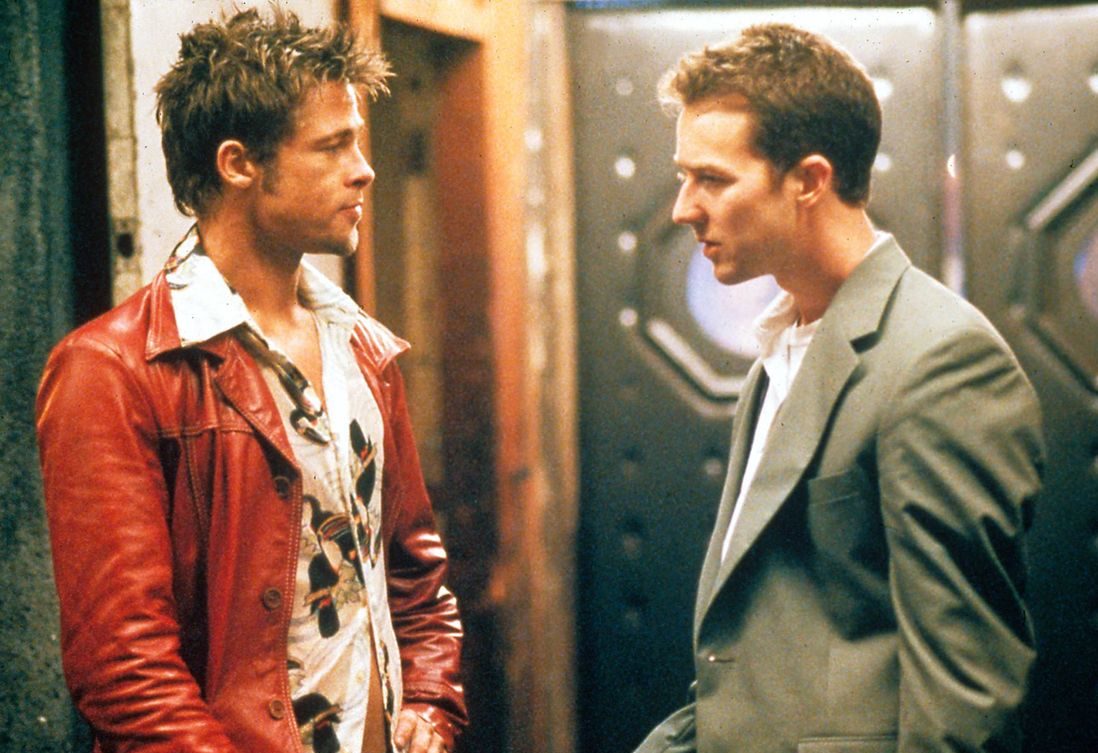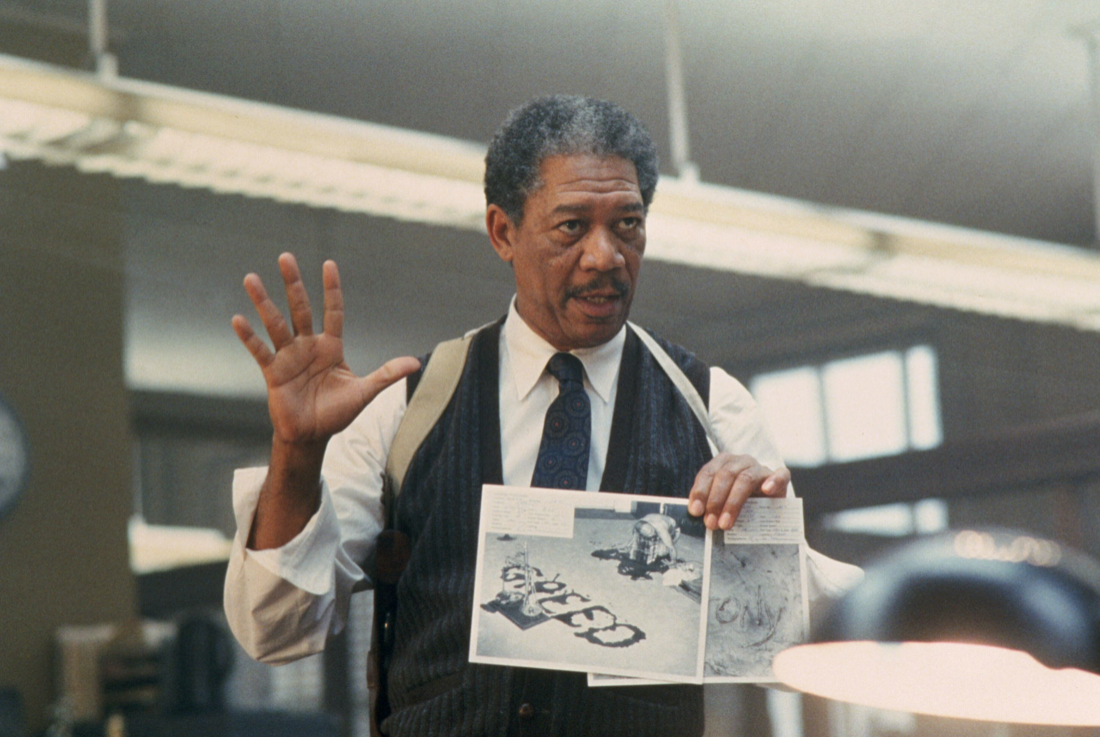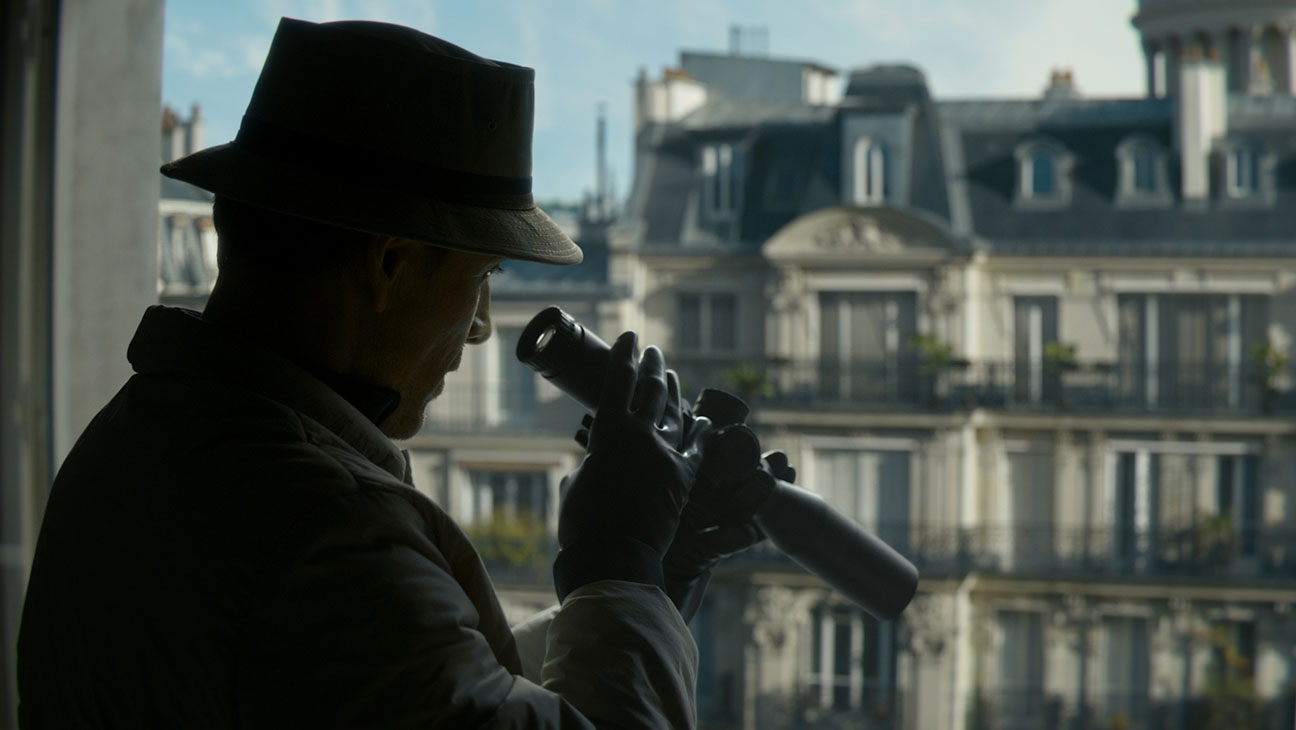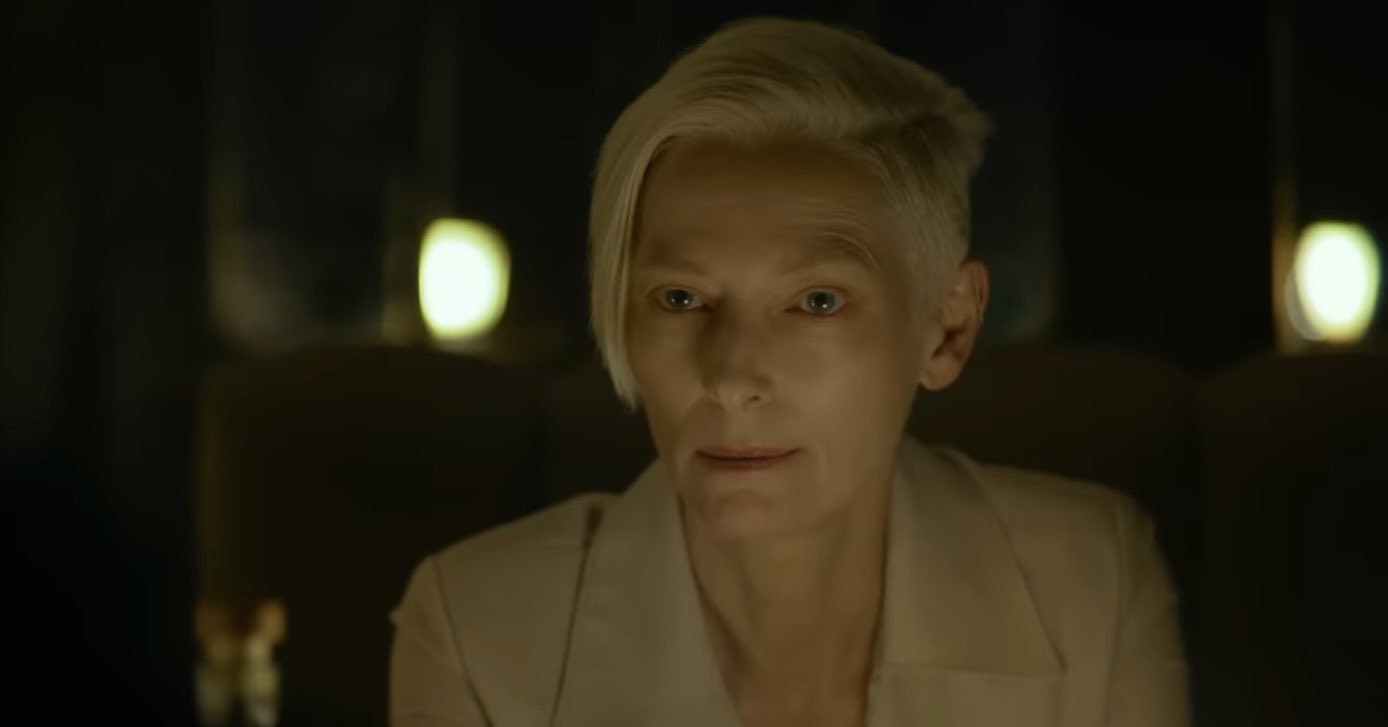- Film And TV
- 13 Nov 23

Buying time in his Dominican Republic hideout after a hit went wrong, Paul Nolan finds time to file his take on gripping new movie The Killer, as well as celebrating the career of director David Fincher, one of modern cinema’s acknowledged masters.
Given his characteristically low-key, self-deprecating manner, David Fincher – whose gripping new effort The Killer is out in cinemas and on Netflix now – would no doubt dismiss the suggestion, but the 61-year US director is one of the key artists of the late 20th century and early 21st.
Like all the greats, the director of classics like Seven, Fight Club, Zodiac and The Social Network has been able to consistently reinvent himself, staking out fresh artistic terrain whilst continually exerting a profound influence on popular culture. My own history with him goes back to when I was 14. It was the day of the England-Scotland match at Euro 96, and myself and my cousin, Evan, were sitting in the sunshine in the back garden, when he started telling me about the Brad Pitt movie he’d seen recently, Seven (ah, the ’90s).
It was about a serial killer who was carrying out a series of grisly murders based on the seven deadly sins, he told me, and it was the most intense shit you’d ever seen your life. It all built to an amazing crescendo where the detective played by Pitt drove out to the desert with his partner, played by Morgan Freeman, and had an unforgettable showdown with the killer.
“It’s a wild movie,” Evan emphasised, barely able to contain his enthusiasm. “It’s… fucking unbelievable!” It remains one of the best movie recommendations I’ve ever received. I didn’t actually get around to seeing Seven until almost a year later, when I – yes, kids – rented it on video. From the famous opening credits – a scratchy montage of the killer assembling a macabre scrapbook, soundtracked by a menacing Coil remix of Nine Inch Nails’ ‘Closer’ – I was totally hooked.
I remember that when it got to the drive out out to the desert towards the end, I found the whole thing so unbearably tense I had to fast-forward to the finale. Looking back from just over 25 years’ remove, it’s remarkable the impact Seven had on me. In our transition year film studies class, I remember writing an extended essay on it that got a lot of attention.
Advertisement
The movie also made me a fan of both Nine Inch Nails and Coil, the latter of whom did an interview with me – their last ever, as it turned out – in Dublin in 2004 (the two members, John Balance and Peter Christopherson, have both since sadly passed away). Earlier this year, that full interview was actually included in Nick Soulsby’s fine book about the group, Everything Keeps Dissolving.
A while back, I remember joking to a friend that in the Grand National of ’90s pop culture, I was proud to have backed my fair share of winners. Certainly, wagering on David Fincher and Trent Reznor was a bit like backing the roaring hot favourite in the 3.30 at Punchestown. Uniquely amongst filmmakers, I vividly recall the circumstances of seeing each new Fincher project as it arrived.
The experiences now cover a few decades and a multitude of formats: excitedly renting The Game on video later in ’97; me and a school friend being blown away when we went to to see Fight Club in 1999 (we subsequently went halves on the celebrated DVD); heading to Cineworld on Parnell Street in 2010 to watch The Social Network, which prompted me to open a Facebook account; signing up to Netflix to watch House Of Cards in 2013.

Fight Club
Memories, as Elvis sang, sweetened through the ages just like wine.
SIGNATURE WORKS
Advertisement
I remember once getting into a bit of a barney with American Psycho author Bret Easton Ellis about whether Fincher or Quentin Tarantino had enjoyed the more complete career. Adding to the drama, Tarantino himself – a friend of Ellis – had called and left a message for the writer shortly before our chat.
It was somewhat of a Messi-Ronaldo/Beatles-Stones debate (“That’s easy,” another friend of mine once opined, “it’s Messi and The Beatles, for fuck’s sake”). Still, it was fun to litigate. I’ve since revised my opinion, but at the time, my take was that Tarantino was the Noel Gallagher of cinema.
In the way Noel had once been a roadie, Tarantino cut his teeth working in a video store. After two laddish mid-’90s masterpieces, Reservoir Dogs and Pulp Fiction, I felt Tarantino had hit something of a creative slump (in this reading, Tarantino’s scripts for True Romance and Natural Born Killers were the equivalent of Gallagher’s Chemical Brothers collaborations, ‘Setting Sun’ and ‘Let Forever Be’).
Ellis wasn’t at all convinced, and we really got into the weeds on Inglourious Basterds, which he felt was far superior to Fincher’s 2014 thriller Gone Girl. I still disagree, but that conversation was in mid-2019, and Tarantino came back hard into my affections later that year with Once Upon A Time In Hollywood. During lockdown, I also got caught up with his magnificent Leone/Peckinpah tribute The Hateful Eight. Meanwhile, Tarantino’s collection of criticism and reviews from last year, Cinema Speculation, is one of the best film books I’ve ever read.
QT has occasionally spoken of his friendly rivalry with the extravagantly talented Paul Thomas Anderson, but I think his true generational rival is Fincher, and boy does the competition remain fierce. After making one of the great 21st century movies with his account of the founding of Facebook, The Social Network – for which Reznor, like you do, won an Oscar for his first film score – Fincher made Netflix’s first major original series with the political drama House Of Cards, which more or less kickstarted the streaming wars.
In the time since, his most impressive work has been the psychological crime drama series, Mindhunter, also for Netflix. Serial killers, of course, are by now acknowledged as a specialty area for Fincher, with another key movie being 2007’s Zodiac, his account of San Francisco Chronicle cartoonist Robert Graysmith’s attempt to identify the titular criminal. Although not a hit at the time of release, its critical standing has increased exponentially over the years, with many influential commentators – including Ellis – now regarding it as a masterpiece.
Advertisement

Morgan Freeman in Seven
House Of Cards and Mindhunter are probably considered the director’s signature works from the last decade, but the fact remains that, like Martin Scorsese, his comparatively minor offerings are more interesting than 90% of most other movies. A major box office hit, the aforementioned Gone Girl, boasting a bravura lead perfohrmance from Rosamund Pike, was a compelling exploration of relationship dynamics and tabloid culture.
Elsewhere, 2020’s Mank – based on a screenplay by the filmmaker’s late journalist father, Jack Fincher – was a fascinating take on the life of Citizen Kane screenwriter Herman Mankiewicz, which earned a plethora of Oscar nominations. Even curios like the Fincher-produced Netflix series Love, Death & Robots (an animated sci-fi anthology) and Voir (a collection of visual essays on film) had some serious high points.
All of which brings us up to date with his new offering. As is often the case with Fincher projects, the movie – starring Michael Fassbender as an assassin who, after a botched job, is hunted down by his bosses – has been in various stages of development for years. Indeed, it was first announced as far back as 2007, when it was reported that Fincher would be adapting French graphic novel The Killer by writer Alexis ‘Matz’ Nolent and artist Luc Jacamon.
 Michael Fassbender in The Killer
Michael Fassbender in The KillerIn a nice piece of symmetry, the movie is scripted by Seven screenwriter Andrew Kevin Walker, while scoring duties are once again handled by Reznor and his NIN partner Atticus Ross. Going in to see the film, I had some trepidation. Early reviews had been mixed, with the pacing coming in for particular criticism.
Advertisement
I wondered if the movie might rank alongside Fincher’s few legitimate duds, including the dreary 2008 drama The Curious Life Of Benjamin Button, and his infamously disastrous 1992 debut Alien 3. On that movie, the creative battles with the studio, Fox, were so intense, Fincher was for a while put off directing features altogether.
I needn’t have worried. In the same way certain music artists seem tailor-made for us, some directors simply align with our individual tastes. Fincher remains very much my tempo. After an inspired title sequence – one of the director’s trademarks – we catch up with The Killer as he stakes out a victim in an abandoned WeWork office in Paris.
In particular, Zodiac made Fincher infamous as the director who would demand dozens of takes of certain scenes, but his fastidious attention to detail has a mesmerising effect. As we watch The Killer wait for his prey to arrive at the luxurious penthouse across the road, the framing, lighting and movement – all accompanied by the character’s droll voiceover – are simply impeccable.
The planned hit ultimately goes wrong, with The Killer accidentally shooting his target’s escort. His bosses are furious and hospitalise The Killer’s girlfriend during an attack on his Dominican Republic hideout. This sets him off on a multi-city trek to seek revenge, as he works his way up through the command chain until he discovers who’s ultimately in charge.
Along with Scorsese, Fincher – who got his start directing music videos for the likes of Madonna and The Rolling Stones in the ’80s and ’90s – has long been the director who makes most consistently brilliant use of rock and pop. Indeed, he has made probably the most inspired use of Bowie needle-drops onscreen, with memorable appearances for ‘The Hearts Filthy Lesson’ in Seven and ‘Right’ in Mindhunter.
It’s a trend that continues in The Killer. Alongside his existential musings, the protagonist also reveals himself to be – wait for it – a Smiths fan. The indie maestros are a staple of his playlists, making for some exciting musical cues whilst also giving the movie a welcome touch of humour. If the film starts to sag a little in the middle, with The Killer’s wanderings feeling a bit aimless, it snaps back into life when he has a restaurant showdown with The Expert, played by Tilda Swinton.
Advertisement

Tilda Swinton in The Killer
As is only managed by the most gifted performers, Swinton makes maximum use of her short cameo, giving her character uncommon personality and depth. The movie also makes clear its jaundiced view of the 1 percent, with The Killer encountering a greasy corporate overlord, whose clueless co-opting of counter culture is made clear by his sporting of a Sub Pop t-shirt – the Seattle label famous for signing Nirvana.
Fassbender, meanwhile, does an impressive job in the lead role, his buttoned-up, angsty turn making it probably his best performance alongside Hunger and Shame. Certainly, the power rankings for alumni of the St. Brendan’s school in Killarney are something to behold, with Fassbender duking it out for top spot with Kerry football legends Gooch Cooper and David Clifford.
A CINEMATIC ODYSSEY
In one of the various film essays I wrote as a teenager, I remember once saying that Fincher was the ’90s answer to Stanley Kubrick. It was only a passing comment, but as time has passed, the similarities have become harder to ignore. Aside from the perfectionist streak and multiple takes, Fincher’s current relationship with Netflix strongly recalls Kubrick’s with Warners.
If Fincher doesn’t have carte blanche to make what he wants, then he appears to enjoy something very close to it. In a further parallel, interviews and public appearances are comparatively rare – the director has only done a handful promoting The Killer – and when he does speak, there is considerable interest in what he has to say.
All of which begs the question of what he does next. Again, like Kubrick, there are a tantalising array of unrealised ideas. I feel Fincher’s great unmade project is his mooted TV adaptation of James Ellroy’s The Black Dahlia, which had he filmed, I’m convinced would be considered one of his greatest achievements (the version ultimately made by Brian De Palma was a critical and commercial flop).
Advertisement
Fincher and Ellroy had also planned to collaborate on a ’50s noir series called Shakedown, part of a trio of sadly thwarted HBO shows that also included a Veep-style sitcom about the world of ’80s music videos, Videosyncrazy, and US remake of Dennis Kelly’s cult Channel 4 sci-fi show, Utopia.
As for the future, Fincher’s two most exciting possible projects include a prequel series to Chinatown, written by the screenwriter of the ’70s masterpiece, Robert Towne, and a show about cancel culture. Wherever he pitches up next, as a long-time Fincher fan, I can guarantee you one thing – you will get your money’s worth, and then some.
• The Killer is in cinemas, and is streaming on Netflix, now.










